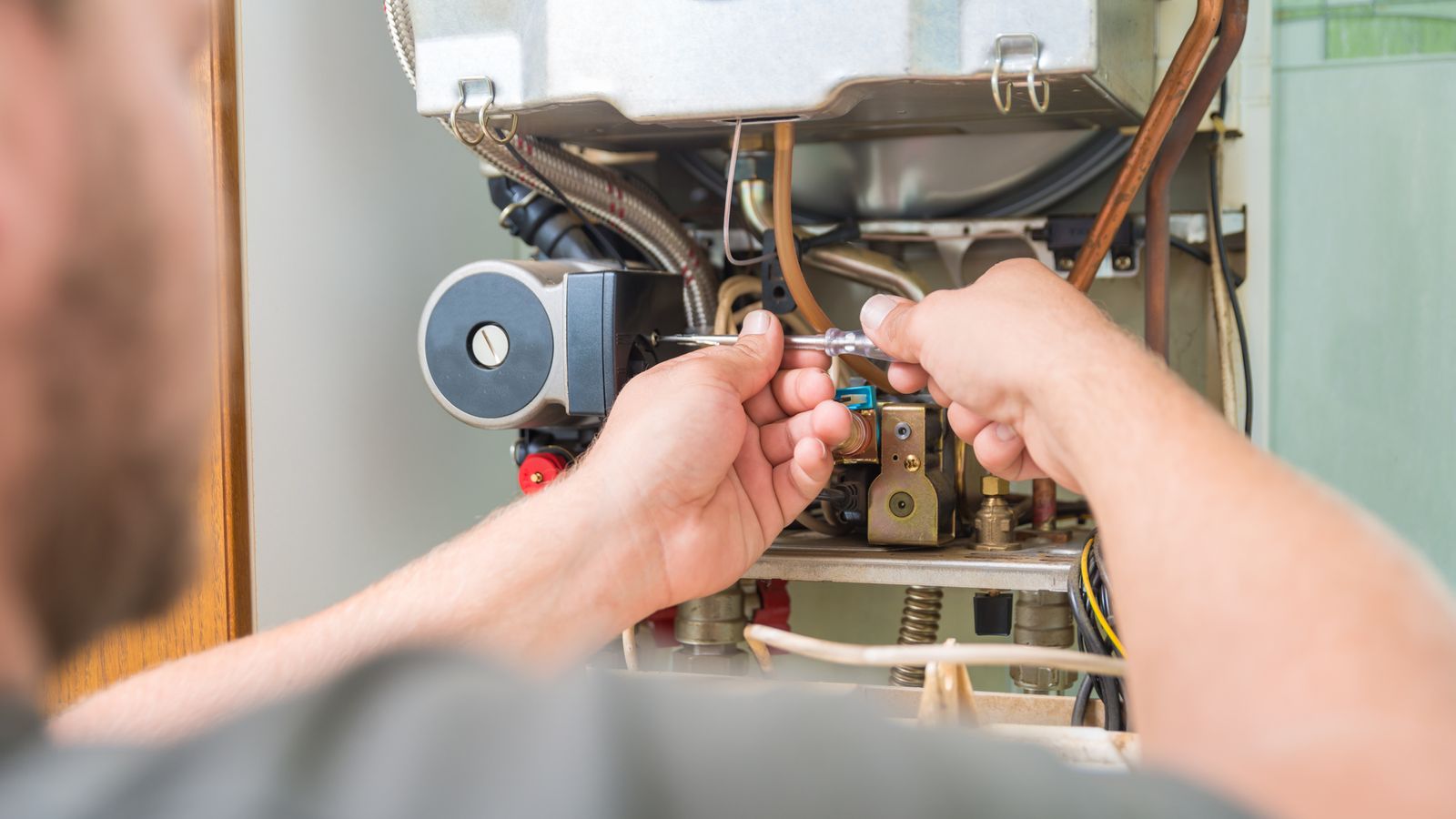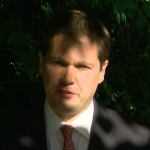Government talks over how Britain should meet its domestic climate change commitments have stalled and the publication of a new strategy is set to be delayed until the Autumn, Sky News has learned.
Ministers had been due to announce a “heat and buildings strategy” next week which would set out how Britain will decarbonise central heating systems in homes and offices – which combined make up a third of emissions.
But Sky News understands a Whitehall standoff over the cost of the plans means this is now not expected until at least September.
Separately, discussions are stuck over how best to fill the tax gap left behind because of the transition to electric cars. Number 10 wants to explore road pricing but is facing resistance elsewhere in government and is hostile to suggestions of an increase in fuel duty.
These issues need to be resolved early in the Autumn and pulled together in a single Net Zero Strategy, all before the UK hosts the UN climate change conference at the end of October. Many environmental groups had hoped the UK would set the pace globally on domestic reforms.
This comes amid a more gloomy global outlook for the COP26 climate change talks: discussions made less progress than hoped at the G7 summit of leaders in Cornwall in June amid signs that governments around the world are worried about the costs of climate change measures.
Please use Chrome browser for a more accessible video player
Even the US decarbonisation strategy is being pared back amid fears it could stall in Congress.
There is growing concern in parts of the government that there could be a big political fight with Tory backbenchers, including figures such as Steve Baker, over domestic plans to be unveiled later this year.
Boilers and heating in buildings are one of the biggest contributors to UK emissions and ministers signalled they wanted to agree a cut-off date of 2035, after which the installation of conventional gas boilers would be outlawed.
However, Whitehall negotiations are stuck over how best to incentivise the public to change to low-carbon alternatives, such as heat pumps and hydrogen boilers. The discussions are struggling over the nature of these incentives and how much the Treasury will have to pay to subsidise them.
Ministers are already concerned about the prospect of a Tory backlash over the costs for middle earners and stress they are not going to fine people for using gas boilers, or force people to remove existing boilers but will instead incentivise people to switch to low-carbon alternatives when they come to replace their fossil fuel boiler as part of its natural life cycle.
Currently, heat pump technology starts at £6,000 and can rise to £18,000, while pumping hydrogen through existing networks is not currently possible. Ministers believe market competition will reduce the cost of replacing boilers but there is little certainty at present about what will happen.
The decision to delay the strategy to the Autumn has not been formally taken, and the key meeting between keen ministers has not yet taken place, but multiple sources have told Sky News this is now highly likely. Just last week it was expected before the Parliamentary recess at the end of next week.
Sky News also understands there are tensions around the transition to electric cars. Currently transport generates the highest emissions of any sector, and today the government published its “Decarbonising transport: a better, greener Britain” plan which commits to all new cars and vans being fully zero emission at the tailpipe from 2035.
Fuel duty on petrol and diesel generates more than £20bn year for the Treasury while electric cars result in no revenue from fuel duty. Plans to introduce per-mile road taxes are being resisted by some ministers, while Downing Street is against increasing fuel duty to make up the gap left by more electric cars.
Paul Johnson of the Institute for Fiscal Studies has warned that unless the issue is sorted soon, there will be big dips in tax revenue and the absence of any tax could lead to greater congestion on the roads.
Caterina Brandmayr, head of climate policy at the Green Alliance, said the delay would damage attempts to decarbonise.
She said: “Given the climate crisis, we really should be moving as fast as we can. Any delay is not helping with economic opportunities. The sooner we can get started the sooner we can ensure the recovery is more resilient. Delaying that action is undermining the ability to realise those opportunities.
“The net zero review is an opportunity for the Treasury to show it wants to play a central role and support other departments.”
Number 10 has said that when replacing boilers, “this government is determined to keep bills low, and that is a priority.”
They said “targeted measures” would be used “to incentivise people to switch to lower carbon and more efficient heating systems, so that the transition is fair, affordable and practical.”
However a government spokesman did not comment on claims the building and heat strategy will be delayed to the Autumn.






















